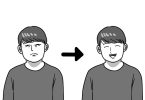#5: Narcissists exert control over everyone.
Narcissists exert control over everyone around them, often in ways that go unnoticed. They have a deep-seated need for control, which they satisfy through subtle or overt manipulation. From quietly influencing plans and decisions to openly manipulating emotions, they seek to dominate situations and people. This behavior isn’t just about asserting authority; it’s a means of maintaining power and superiority. Even when they think no one is watching, narcissists find ways to dictate the course of events and shape the behavior of those around them.
Their need for control can create a tense atmosphere where others feel pressured to comply with their wishes. Understanding these dynamics is crucial for recognizing their influence and reclaiming autonomy in relationships. By identifying these subtle tactics, you can begin to establish healthier boundaries and reduce their impact on your life.
#6: Portraying a false persona.
Portraying a false persona is a common tactic among narcissists. Behind closed doors, they often meticulously create and uphold a facade of kindness, generosity, or moral integrity, even as they engage in manipulative or harmful behaviors. This dual identity allows them to present a polished exterior to the world while concealing their true motives and actions. Maintaining this false persona requires careful manipulation of perception, ensuring that others see them in a favorable light. This behavior isn’t just about preserving a good reputation; it’s a means of gaining trust and influence over others. By portraying themselves as virtuous or compassionate individuals, they manipulate others’ perceptions and maintain control over their relationships.
A Book: Why Does He Do That?: Inside the Minds of Angry and Controlling Men.
#7: Showing cruelty towards pets.
Showing cruelty towards pets can be a disturbing manifestation of extreme narcissism. In these cases, individuals may mistreat animals to assert dominance or release frustrations, especially when they believe their actions won’t be observed or challenged. This behavior stems from a distorted sense of entitlement and a need to exert control over living beings perceived as weaker. Such actions are not just acts of aggression but also reflect a disregard for the well-being of vulnerable creatures. It’s a troubling indicator of their willingness to harm those who cannot defend themselves.
Continue Reading on the Next Page
Sharing Is Caring!





